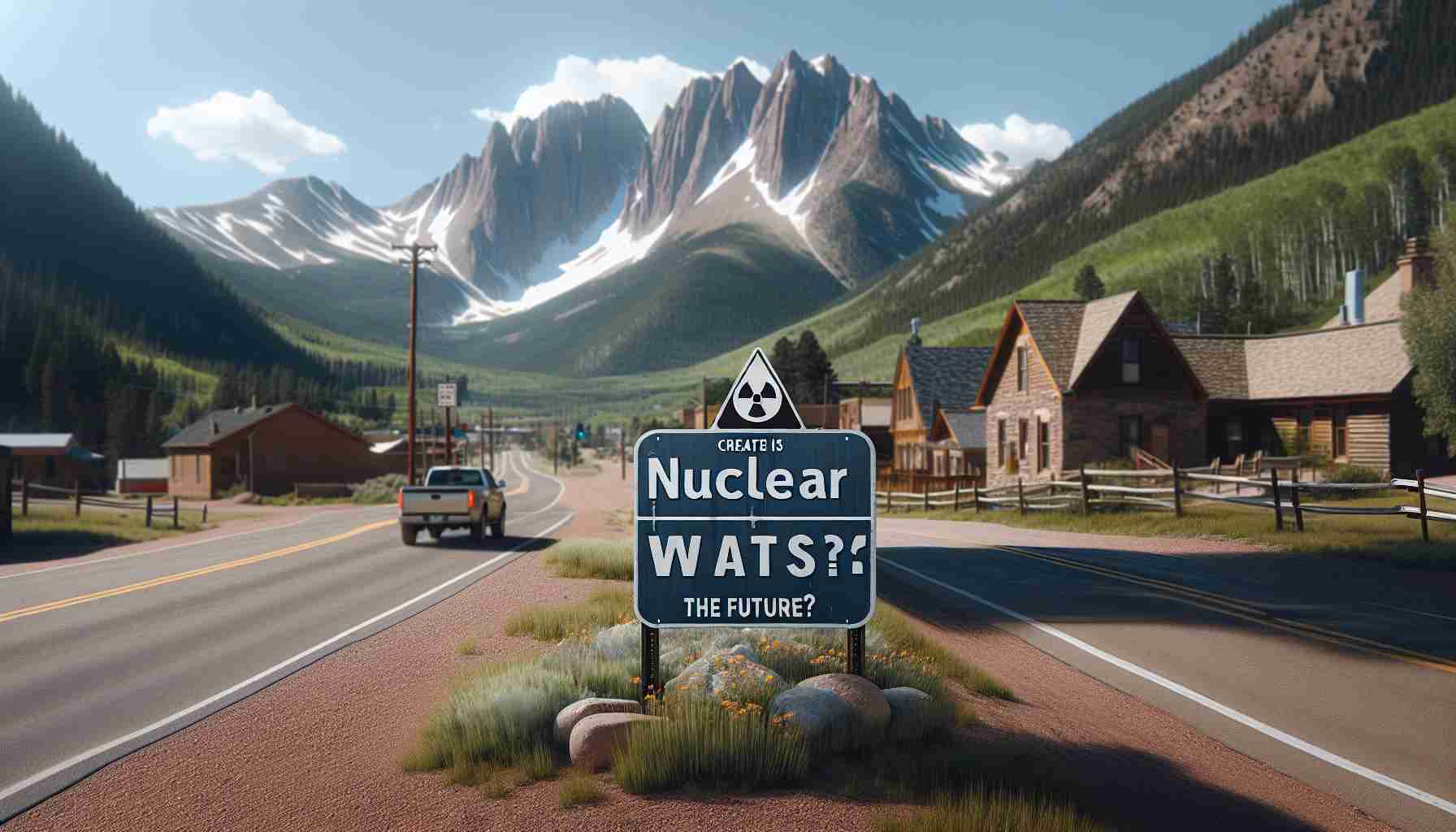In northwest Colorado, a small community grapples with a controversial proposal that could reshape its economic landscape. As coal jobs continue to dwindle, residents of Hayden, a town nestled near the Yampa River, find themselves weighing the implications of a potential nuclear waste storage facility.
This isn’t the first time the town has been approached with grand ideas to boost its economy. Local residents have previously considered proposals for casinos, but the latest concept involves importing radioactive materials. The discussions are still in initial stages, generating both curiosity and concern among citizens.
At a popular coffee shop in the heart of Hayden, local business owners express their apprehensions. They highlight the potential dangers of transporting nuclear waste via rail, particularly in a community that is also exploring a new passenger train route to enhance connectivity within Colorado. The residents are passionate about preserving their town’s values, emphasizing the importance of clean air and water. They envision a thriving community focused on sustainable agriculture and local production.
As Hayden faces the closure of its power plant and an uncertain economic future, the juxtaposition of potential projects prompts heated debates. This pivotal moment could define Hayden’s path forward, presenting the question: Will the promise of economic development outweigh the community’s deep-rooted values and safety concerns?
Beyond the Debate: The Future of Hayden and the Nuclear Waste Facility Proposal
The unfolding situation in Hayden, Colorado, not only raises immediate questions about economic survival but also serves as a microcosm of larger societal and cultural shifts induced by regional resource depletion. As traditional coal jobs diminish, communities nationwide are compelled to reevaluate their identities and economic structures. The urgency of these discussions points to a broader trend where towns that have relied on finite and environmentally damaging resources are now facing a crossroads between potential economic influxes and sustainable alternatives.
The implications of establishing a nuclear waste facility extend beyond Hayden’s borders, signaling a possible shift in national energy policies as the United States grapples with the future of nuclear power amidst climate change considerations. Such projects could set a precedent for other struggling communities, especially those rich in natural resources but poor in sustainable economic initiatives.
Moreover, the potential environmental consequences of transporting nuclear waste—through rail systems that may crisscross fragile ecosystems—underscore a pressing concern: the safety of these operations versus the promise of economic uplift. A resilient community must weigh its environmental integrity against short-term financial gain, raising pertinent questions about long-term sustainability and intergenerational responsibility.
As culture shifts towards a more informed populace focused on climate action, the dialogue in Hayden might resonate far beyond its confines, offering lessons in community resilience and ethical development that could serve as a model for similar towns facing pivotal choices worldwide.
Is Hayden’s Future at Stake? Exploring the Nuclear Waste Proposal and Its Implications
The Economic Crossroads of Hayden, Colorado
In the small community of Hayden, Colorado, residents are confronted with a significant decision that could dramatically alter their economic landscape. As the town faces the decline of its coal industry, discussions are emerging around the controversial proposal for a nuclear waste storage facility. This development is sparking a mix of curiosity and concern amongst the locals, who have seen various proposals aimed at revitalizing their economy over the years.
The Community’s Historical Context
Hayden has long been a community reliant on coal jobs, but with the recent decline in the coal industry, new economic strategies are being explored. Previous proposals, including the introduction of casinos, reflected the community’s search for alternative revenue streams. However, the current proposal to import radioactive materials introduces a pressing debate about the balance between economic development and community safety.
Pros and Cons of the Nuclear Waste Proposal
# Pros:
1. Economic Boost: Proponents argue that the nuclear waste facility could provide significant economic benefits, including job creation in operations and maintenance.
2. Infrastructure Improvements: The construction and operation of such a facility may lead to improvements in local infrastructure, including roads and railways.
3. Tax Revenue: The facility could bolster local tax revenues, providing funds for public services and community projects.
# Cons:
1. Safety Concerns: Residents are particularly worried about the potential dangers associated with transporting nuclear waste, especially through rail routes that may pass near populated areas.
2. Environmental Impact: There are fears that a nuclear facility could compromise Hayden’s cherished clean air and water, vital to the community’s identity and agricultural prospects.
3. Community Values: The proposal raises fundamental questions about the type of community Hayden wants to be—one focused on sustainability or driven by the pressures of economic survival.
The Vision for Hayden’s Future
Local business owners and residents express a strong desire to preserve their community’s values, favoring investments that align with sustainable agriculture and local production over risky alternatives. This community’s vision encapsulates a broader narrative about the struggle to maintain identity in the face of economic necessity.
Current Developments and Public Sentiment
As discussions around the nuclear waste facility progress, local sentiment remains divided. While some view it as a lifeline for a struggling economy, others fear it could define Hayden as a site for hazardous materials, impacting its reputation and way of life.
Conclusion: A Defining Moment for Hayden
Hayden stands at a critical junction, with the proposed nuclear waste storage facility prompting intense debate about the town’s future. The question that remains is whether the allure of economic development can truly outweigh the community’s deep-rooted commitment to maintaining safety and environmental integrity.
As Hayden navigates these discussions, it may serve as a case study in balancing economic opportunity with the values that define community life. The solutions and decisions made here could set a precedent for similar towns grappling with economic transitions in the face of changing industries.
For more insights on community economic development, visit economicdevelopment.org.
The source of the article is from the blog krama.net



